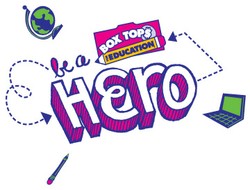Math Learning Disabilities In Children
by MarkNR
Dealing with the challenges of helping in the advancement of your children who have math learning disabilities.
What It Means To Have a Math Learning Disability
Having a daughter with serious learning disabilities in areas of study has painted a clear picture for us as to the complexities of this type of learning challenge. Math learning disabilities in children can be particularly daunting and may never be fully resolved. They may only be managed by years of learning how to perceive mathmatical issues, rather than being able to mentally calculate them.
This means living a full life with a calculator nearby to figure every calculation needed anywhere they happen to be.
The Importance of Helping Your Child As Early As Possible
But doing all that as early as possible to alleviate a child's math learning disabilities is critical in achieving whatever level of success that is possible. And a serious challenge can be in the school where your child should be learning. It takes teachers solely dedicated to teaching kids that require special resources to keep the experience from becoming a nightmare.
Types Of Math Learning Disabilities
Kids with significant math learning difficulties demonstrate rather clearly where they are stuck. It may be a narrow area that seems out of range for the child's thinking processes. Or it may be math in general, with seemingly inability to learn math at any level.
Finally, there is the ability to calculate in some kids, while demonstrating a complete lack of concepts. In other words they can add, subtract, multiply and divide. But they have no idea why they do it or what to do with it when they do.
Where chronic disability with math in general is demonstrated, a child most likely lacks ability in both operational and conceptual math. That is where our daughter has been all her life continuing now that she is eighteen years old. The good news is that after working directly with her disability for eight years, she is just now beginning to get some concept of the connection between math and spending, time, driving, etc.
The difficulty in this type of learning deficit is that correcting a problem in one area does nothing in the other. A child having operational difficulties can be trained over a long period of time to calculate somehow, with or without an aid. But that does nothing for the conceptual deficit that keeps them from understanding what to do with their calculations. At eighteen, our daughter is just now able to count by 10s to 100.
One of the the monstrous frustrations with kids that lack the ability to learn math from any perspective is that they may show some learning progress along the way. Then, inexplicably, they all of a sudden seemingly forget everything they had recently mastered. With math skills naturally developing sequentially, this leaves them unable to progress to other levels and types of math calculations.
Possible Causes Of Math Learning Disabilities
The causes of math learning disabilities in children are so vast that they defy discussion in an article like this. Some of the more common causes of math difficulties are Dyslexia and ADD. Unfortunately, Attention Deficit Disorder has sickeningly been thrown around at every kind of imaginable activity in kids. From simply active children to those with particularly strong personalities, ADD seems to be the most in vogue. But in reality, where it truly exists in some kids, it can be a serious source of opposition to learning math and other subjects.
Aside from those type conditions, a kid with math learning disabilities may never be decisively diagnosed. They just have to be observed and worked with according to their noted abilities. Following are some of the ways you can help your child at home with math learning disabilities.
Creative Ways To Teach Your Child Math
Rewards for focusing on math. A disconcerting and sometimes infuriating factor in kids with math deficits is the child's lack of interest in trying to do better. Many times these children just see math as an enemy of their happiness. Their discouragement eventually runs deep and their desire to get away from it can become intense.
These are the times rewards can come in very handy. Gaining a child's interest in math, even for a short time, can result in some amazing accomplishments. It's interesting that many children that have a deficit in one area have extraordinary abilities in others. Their interest there is focused and intense. Getting some of that directed at math can go a long way.
Candy, movies, toys, trinkets or whatever is appropriate for your child's age and interest can be an incentive to work hard and concentrate on their math.
Make math part of your daily routines. Be thoughtful of, and ready to use any casual situation to let your child get a lesson in math. Many times these type oportunities will produce more in the way of conceptual understanding more that compuational. At the store shopping, driving (how far to the next car), whenever you are doing something interesting to them are all good times to insert a quick lesson.
Get math teaching materials from your child's teachers. Schools have many types of resources that can be loaned or recommended. Many of them will work better in an entertaining home setting than in a classroom. Use them creatively, instigate quick contests, and do whatever will catch your child's interest.
These are all things we have done over the years. And though the progress has been agonizingly slow, there has been progress. And that alone, as small as it may seem to some, is worth all of it.
It's A Long Process. Don't Overload The Child Or Yourself
In all of this, you will be working for a long time to ensure your child will have the best chance of learning functional math. Don't do any of it in a way that will overload or stress your child .... or you. Don't do any one activity for too long. Make them short, fun and memorable.
That way the long haul that you are committed to will be fun and productive. And you will get to see your child achieve maximum results with everybody staying happy about the process.
You might also like
Box Tops for Education Make it Easy to Support Your SchoolThere are many fundraising opportunities open to the general public that will...
Who Is Miffy and Who Are Her Friends?Created by Dick Bruna, Nijntje is a little white rabbit whose English name is...




Comments